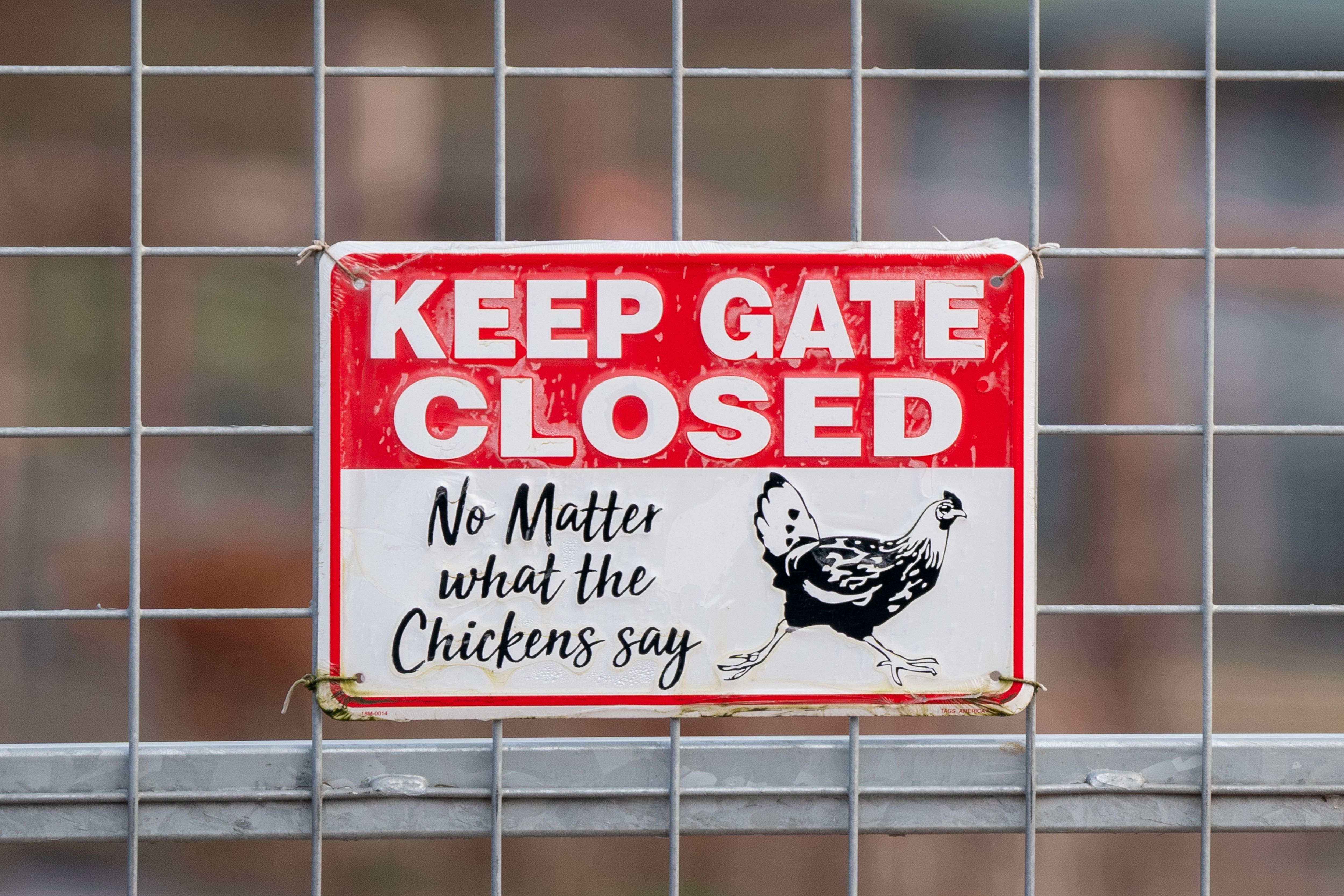

An order requiring all bird owners to keep their animals indoors to reduce the spread of avian influenza is to be lifted, the Government has said.
Bird keepers have been subject to a national housing order since November 7 to help curb an unprecedented number of bird flu cases – more than 330 have been confirmed in the UK since October 2021.
The Government said poultry and other captive birds can be kept outside again from 0001 on April 18 unless they are in a specified protection zone.
From this date, eggs laid by hens with access to outside ranges can once again be labelled as free range.
Dr Christine Middlemiss, the UK’s chief veterinary officer, said the risk of bird flu infection has reduced following restrictive measures throughout the winter, although bird keepers are being encouraged to observe “stringent standards of biosecurity”.
The unprecedented nature of this outbreak has proven it’s more important than ever for bird keepers to remain vigilant for signs of disease and maintain stringent standards of biosecurity
The strict rules brought in under the Avian Influenza Prevention Zone will still apply, the Department for Environment, Food and Rural Affairs (Defra) said, as the virus may still be circulating in the environment for several weeks.
Places with poor biosecurity have been assessed as medium risk of infection and those with good biosecurity are seen as low risk.
Dr Middlemiss said: “Whilst the lifting of the mandatory housing measures will be welcome news to bird keepers, scrupulous biosecurity remains the most critical form of defence to help keep your birds safe.
“It is thanks to the hard work of all bird keepers and vets who have played their part in keeping flocks safe this winter that we are in a position to take this action.
“However, the unprecedented nature of this outbreak has proven it’s more important than ever for bird keepers to remain vigilant for signs of disease and maintain stringent standards of biosecurity.”
Keepers are being told to cleanse and disinfect clothing, footwear, equipment and vehicles before and after contact with captive birds, reduce the movement of potential virus carriers such as people and vehicles to and from bird areas, close off contact with wild birds and be on the lookout for any signs of disease.
They are also being told to minimise contamination from manure and slurry, control vermin and thoroughly clean and disinfect bird housing on a continuous basis.
The UK Health Security Agency has said avian viruses do not spread easily to humans and have so far found no positive cases in people while monitoring those who have developed flu or cold-like symptoms after being in contact with animals.
They are advising that people avoid contact with any sick or dead wild birds they might find and wash their hands after feeding wild birds.
Bird keepers are asked to report any suspicion of disease to Defra







